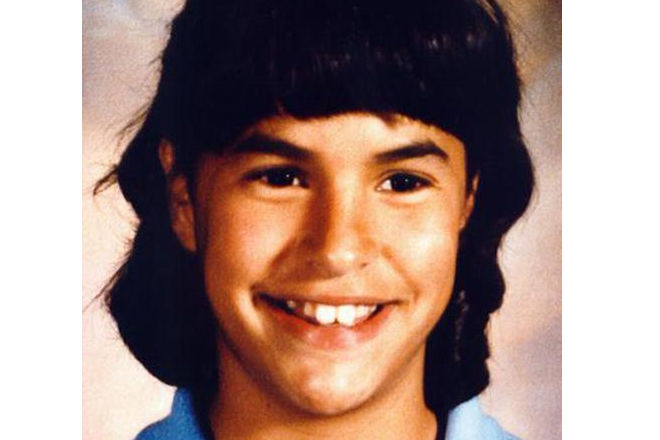Steven Pankey’s decades-long fixation on the 1984 disappearance of Greeley’s 12-year-old Jonelle Matthews is at the center of the murder case against him.
Whether that fixation is evidence of guilt or merely a true-crime obsession will be decided by a Weld County jury at the end of an approximately five-week trial that began with opening statements Wednesday.
Pankey, 70, is charged with first-degree murder and kidnapping in Jonelle’s death. The girl disappeared while she was briefly home alone on Dec. 20, 1984. Her body was not discovered until 2019; she’d been shot in the forehead and buried in a remote, sandy field.
There is no DNA evidence in the case, Weld County District Attorney Michael Rourke told the jury during opening statements.
“What you will hear,” he said, “is the type of evidence older than time itself. Statements. Statements by the defendant himself. Statements and behavior that will lead you to one conclusion — that he is the individual we have been looking for for 35 years.”
But Pankey’s defense attorney, Anthony Viorst, said Pankey had nothing to do with Jonelle’s killing and theorized to the jury that another man whose mother lived across the street from the Matthews family carried out the killing.
Viorst said Pankey became obsessed with Jonelle’s case because he is a “true crime junkie,” and that he involved himself in the investigation out of an inflated sense of self-importance. Pankey lives with Asperger syndrome, which changes the way he processes information, Viorst said. He called Pankey “a little crazy” and said he tells ”white lies.”
Aside from Jonelle’s case, Pankey previously claimed to be involved in a separate murder in the 1970s, Viorst said, but he was not involved and someone else was convicted of the crime.
“Steve Pankey is a busy body,” Viorst said. “He gets into people’s business. I’m not here to say that’s a great quality, but that’s who he is. He gets in the middle of things. And when it comes to these true crime situations, he’s particularly interested and he gets particularly involved.”
Pankey was home with his family when Jonelle went missing, Viorst said, and he did not own a gun at the time. But starting just weeks after the disappearance, Pankey for years claimed to have information about the case and sought immunity in exchange for sharing that information with police.
The day after Jonelle disappeared, Pankey took his then-wife and child on a surprise road trip to California to visit family. On the drive back, he listened to the radio obsessively for information about the girl’s case, Rourke said. When they arrived home, he drove his wife to a grocery store, asked her to pick up the last few days’ newspapers, and then had her read aloud, in the car, all of the stories about Jonelle. Over the next few days, he dug in his front yard and a car on his property burst into flames, Rourke said.
Within weeks, Pankey went to the FBI, claimed he was a minister (he was not) and said he’d learned information about the killing through a pastoral confession. The FBI dismissed the claims as unimportant, Rourke said. But it was the start of a decades-long obsession for Pankey.
Data downloaded from Pankey’s electronic devices shows he conducted thousands of online searches on Jonelle’s case. In August 2019, a month after Jonelle’s body was discovered, he clicked on a news article that noted there was no DNA in the case, Rourke said.
“Two days later he voluntarily picks up the phone and says, ‘I want to voluntarily give my DNA’ — after he knows there is no DNA in this case.”
Viorst told the jury that a man named Norris Drake was the actual killer of Jonelle. Drake’s mother lived across the street from the family, and he’d visited for dinner on the night Jonelle disappeared, Viorst said. He said a witness described Drake leaving his mother’s house around the time Jonelle was home alone, and not returning until early the next morning.
Drake was known to have a sexual interest in young girls, Viorst said, suggesting that Drake lured Jonelle out of her house — perhaps gaining her trust by saying he was the son of her neighbor — and then killed her. Drake, who is dead, was never charged with Jonelle’s kidnapping or murder.
Jonelle’s father, Jim Matthews, was the first witness to take the stand Wednesday. He described his daughter, who was adopted, as an outgoing girl.
“Strong-willed, (she) liked the attention, had lots of friends,” he said. “If Jonelle was in the room, you knew she was in the room. And (she was) very proud of her Latino background. And just a very lively young lady.”
Source: Read Full Article


